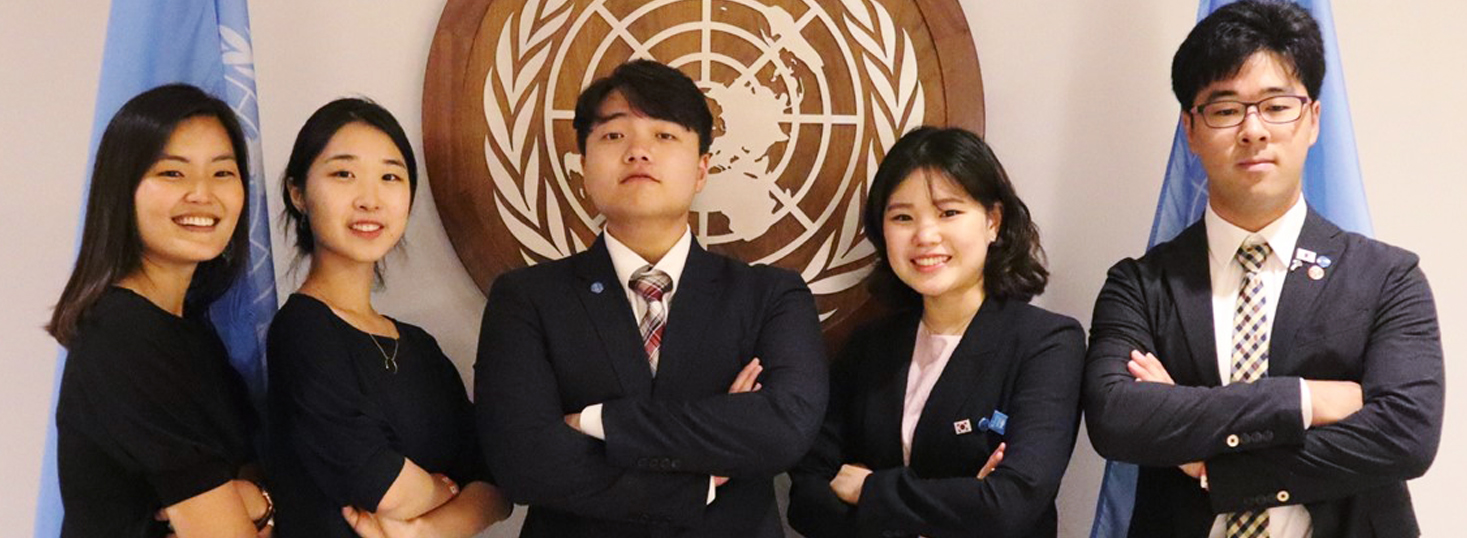Programmes
From the 2017-18 academic year, the School of Journalism and Communication launches the Global Communication undergraduate programme, which is the first of its kind in Hong Kong. Courses of the programme examine the complex nature, processes, and impact of globalisation on media and the development in media studies, cultural studies, global media management, and cross-cultural communication associated with the new modes of communication. Students will gain professional insights and cutting-edge knowledge from local veteran practitioners and world-leading communication scholars. They will also have the chance to study in one of our partner universities across Asia, Europe, and North America.
Graduates can pursue careers in multinational corporations, transnational news organisations, global advertising and public relations agencies, new media organisations, government, and non-profit organisations. Graduates can also pursue postgraduate studies in the area of global communication, media studies, and related fields.
Communicating Across Boundaries
Globalisation has posed challenges in almost every aspect of individual and social life. The communication and media industries are not immune to such challenges. There is an increasing demand for well-educated professionals with strong communication skills and international perspectives. This programme responds to these needs in society.
Being the first of its kind, the Global Communication programme (GCOMN) combines a rigorous training in journalism and communication studies and a guaranteed academic exchange for one to two semesters. Students will gain professional insights and cutting-edge knowledge from local veteran practitioners and world-leading communication scholars. They will also have the chance to study in one of our partner universities across Asia, Europe, and North America.
‘The programme is designed to develop students’ ability to think globally and act locally. It also provides practical training on multilingual and multicultural competencies and professional skills in journalism,’ said Prof. Donna Chu, Director of School of Journalism and Communication.
GCOMN places equal emphasis on ‘theory’ and ‘practice’. The theoretical component of the programme examines the complex nature, processes, and impact of globalisation on media as well as the challenges in communicating in intercultural settings. The practical component engages students with real-world production of the School’s English news practicum magazine, Varsity, and elective courses in integrated marketing communication and creative media.
‘Applicants should have a deep interest in global issues and a strong desire to become a future leader in diverse intercultural settings. They should show their commitment in developing the ability to analyse local matters within the global context and collaborate with international partners,’ Professor Chu remarked.
Janine Kim, Class of 2022 of GCOMN, is impressed by the courses that the programme offers. ‘The Global Communication programme truly reflects the current media landscape. Students have plenty of opportunities to get to know various media and communication cultures, including Bollywood movies, telenovelas from Latin America, and the Korean Wave.’
 Janine Kim (2nd right), Class of 2022, BSSc in Global Communicaiton
Janine Kim (2nd right), Class of 2022, BSSc in Global Communicaiton
Every year, GCOMN organises the ‘Global Communication Talk Series’ and invites veteran practitioners to share their industrial experiences and insights with the students. These experts, who have diverse academic and industrial backgrounds, provide valuable advice to students for their success in both the academia and the industry.
On top of the academic exchange, there is also an overseas field study where students, under the supervision of their teachers, conduct original research and media production.
Students are also free to further explore their interests or broaden their knowledge by taking elective courses in various areas such as advertising and public relations, journalism, creative and new media, and communication studies. They can also pursue a minor at CUHK. Minors related to politics, sociology, cultural studies, and business administration are particularly relevant to GCOMN.
On the prospects of the graduates, Professor Chu pointed out, ‘They can either pursue careers in multinational corporations, transnational news organisations, global advertising and public relations agencies, global new media organisations, government, and non-profit organisations, or further their studies in the area of global communication, international relations, and related fields.’
Lastly, Janine has the following advice for all prospective students:
‘As a student in the Global Communication programme, it is extremely important to be open-minded and to actively expose yourself to as many learning opportunities as possible. Always take a shot and try out new things!’
Note: Because of the ongoing global pandemic, there might be changes in the timing and destination of overseas studies if necessary.
Published: Summer 2017
Last Updated: Summer 2022

